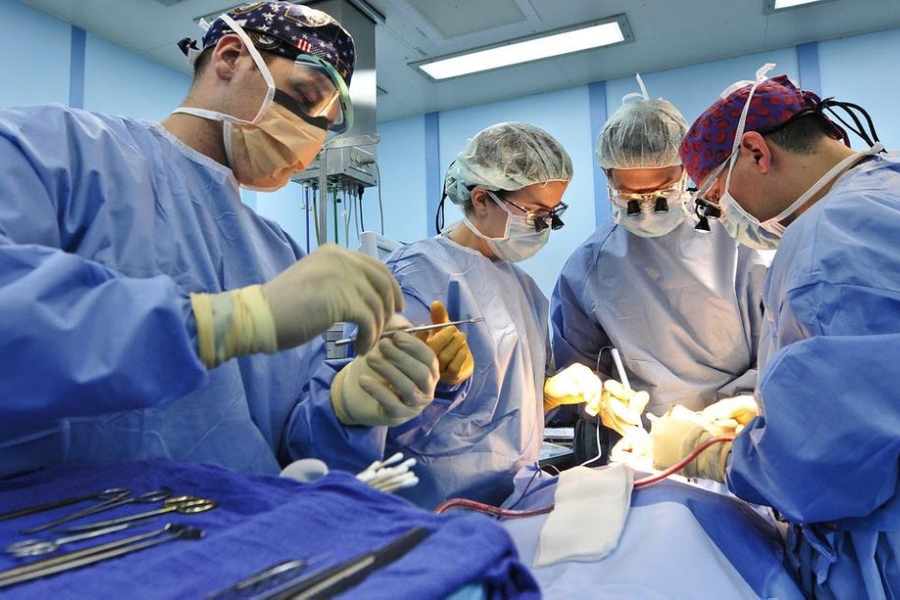Exploring Careers in Surgical Technology: A Vital Role in the Operating Room
Surgical technologists, also known as surgical techs or operating room technicians, hold a pivotal position in the medical field.
Working closely with surgeons, nurses, and other healthcare professionals, they are indispensable in ensuring that surgical procedures are conducted safely, efficiently, and with precision. From preparing the operating room to assisting during surgery and managing post-operative clean-up, their role is multifaceted and essential.
Who Are Surgical Technologists?
Surgical technologists are the backbone of the operating room, ensuring smooth surgical operations from start to finish.
They play a crucial role in maintaining sterile environments, handling specialized instruments, and safeguarding patient well-being. Their responsibilities demand both technical expertise and a meticulous attention to detail. Let’s delve deeper into their duties, the pathway to becoming a surgical technologist, and their impact on modern medicine.
Pre-Surgery Preparation: Laying the Groundwork for Success
The success of any surgical procedure begins long before the patient enters the operating room. Surgical technologists are instrumental in creating a sterile and well-organized environment that minimizes risks and sets the stage for seamless operations.
Instrument Sterilization
To prevent infections, surgical tools must undergo rigorous sterilization. Surgical technologists meticulously clean, disinfect, and prepare all instruments to meet stringent medical standards. This critical step ensures that the operating room is free from harmful microorganisms.
Setting Up Equipment
Beyond sterilization, surgical technologists organize and arrange equipment tailored to the procedure. From surgical tools to monitoring devices, they ensure everything is positioned correctly. Additionally, they test equipment to confirm it functions flawlessly, mitigating potential issues during surgery.
Inventory and Supplies Check
Another vital aspect of pre-surgery preparation is ensuring the availability of essential supplies, such as surgical drapes, sterile bandages, and medications. Surgical technologists meticulously cross-check inventories to avoid delays or disruptions during the procedure.
During Surgery: Supporting Precision and Efficiency
As the surgery commences, surgical technologists take on an active and dynamic role. Their attentiveness, technical skills, and ability to anticipate the surgical team’s needs are integral to the success of the operation.
Instrument Handling
During the procedure, surgical technologists act as the surgeon’s right hand, providing the necessary instruments promptly. Their ability to anticipate needs reduces downtime, allowing the team to maintain focus and precision.
Maintaining a Sterile Field
A sterile operating environment is non-negotiable in surgery. Surgical technologists vigilantly monitor the surgical field, ensuring no breaches occur. This includes overseeing the behavior of team members and the handling of equipment to prevent contamination.
Assisting with Tasks
In certain cases, surgical technologists may assist directly in the procedure. This can include tasks such as holding tissues or manipulating instruments to improve the surgeon’s visibility and access to the operative site.
Tracking Tools and Materials
Accountability is critical in the operating room. Surgical technologists meticulously track all instruments and materials used during the procedure. This ensures no tools are misplaced or left inside the patient, safeguarding against potential complications.
Post-Surgery Duties: Resetting for Future Procedures
Once the surgery is complete, surgical technologists shift their focus to preparing the operating room for the next case. Their post-operative responsibilities are as critical as their intra-operative duties.
Room Disinfection
The operating room undergoes thorough cleaning and disinfection after every procedure. Surgical technologists play a key role in this process, ensuring that the room meets strict hygiene standards for subsequent surgeries.
Waste Management
Proper disposal of medical waste, including used gloves, sponges, and other materials, is essential. Surgical technologists follow stringent protocols to manage waste safely, minimizing risks to staff and patients.
Restocking and Reorganization
To maintain operational efficiency, surgical technologists sterilize instruments, restock supplies, and reorganize equipment. Their meticulous preparation ensures the surgical team is ready for the next patient without delays.
Educational Path to Becoming a Surgical Technologist
Embarking on a career as a surgical technologist requires formal training and, in many cases, certification. The educational journey equips aspiring professionals with the skills and knowledge necessary to excel in this demanding field.
Education Programs
Surgical technologists typically enroll in accredited programs offered by community colleges, technical schools, or universities. These programs, which range from 9 to 24 months, include a blend of classroom instruction and hands-on clinical training. Core subjects include anatomy, sterilization techniques, surgical procedures, and patient care.
Certification
While not universally required, obtaining a certification such as the Certified Surgical Technologist (CST) credential significantly enhances job prospects. Certification demonstrates a high level of competence and commitment to the profession. Maintaining this certification often involves continuing education to stay updated with advancements in surgical technology.
Career Outlook and Opportunities
The demand for surgical technologists is on the rise, fueled by advancements in medical technology and an aging population requiring more surgical interventions. The U.S. Bureau of Labor Statistics projects steady job growth in this field, making it an attractive career choice.
Salaries for surgical technologists vary based on factors such as experience, location, and specialization. Entry-level professionals can expect to earn around $50,000 annually, while experienced technologists in high-demand regions or specialized roles may command salaries upwards of $75,000. Additionally, opportunities for advancement into roles like surgical first assistants or supervisory positions add to the career’s appeal.
conclusion
Surgical technologists are indispensable members of the healthcare team, ensuring that every surgical procedure is conducted with safety, precision, and efficiency. Their behind-the-scenes contributions are vital to the success of operations and the well-being of patients.
For individuals drawn to a fast-paced, detail-oriented, and impactful career in healthcare, surgical technology offers a rewarding pathway. Whether preparing instruments, assisting during procedures, or ensuring a sterile environment, surgical technologists truly embody the phrase “the unsung heroes of the operating room.”
Stay informed with the latest tech news and reviews at bee bom.






